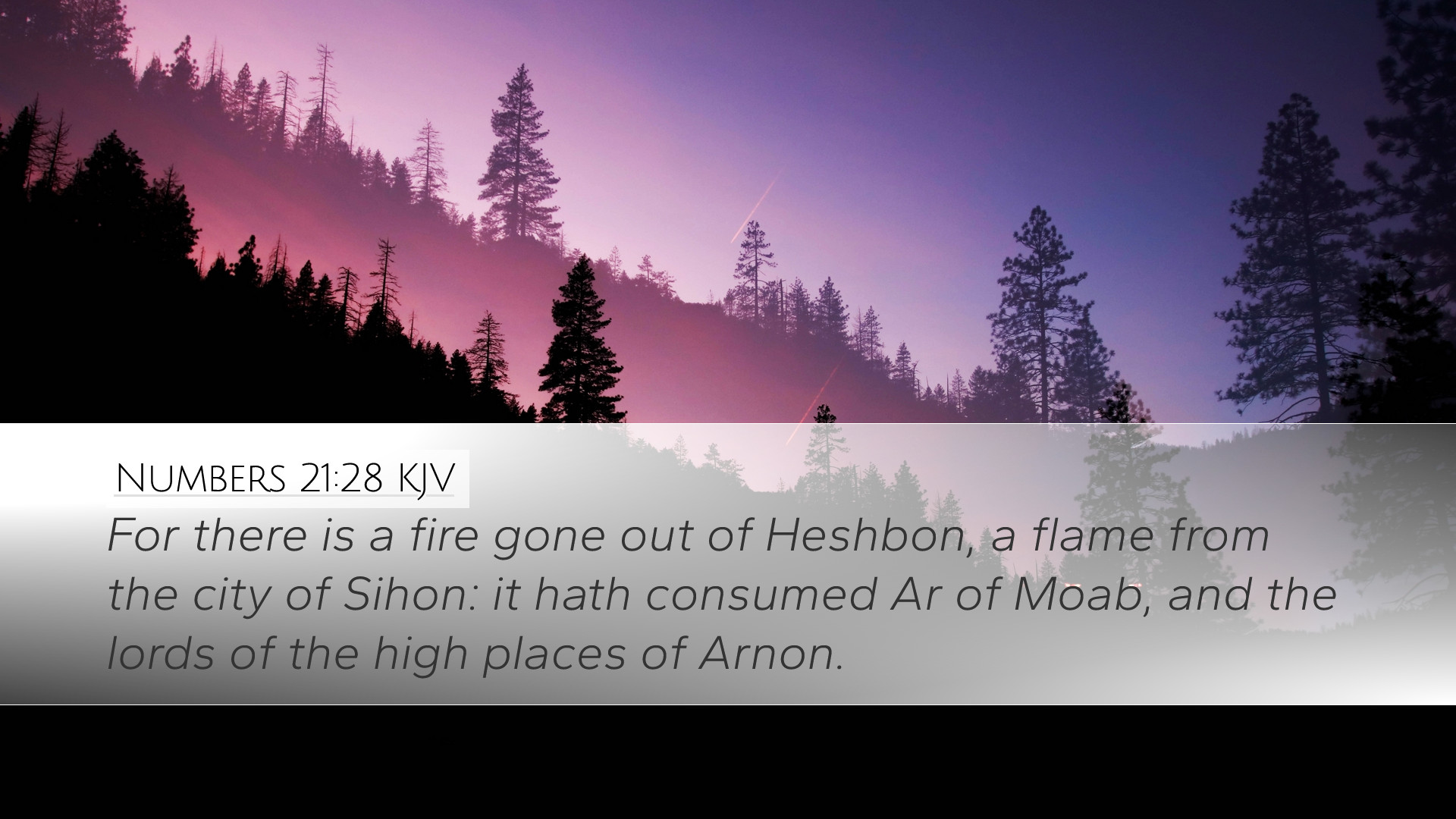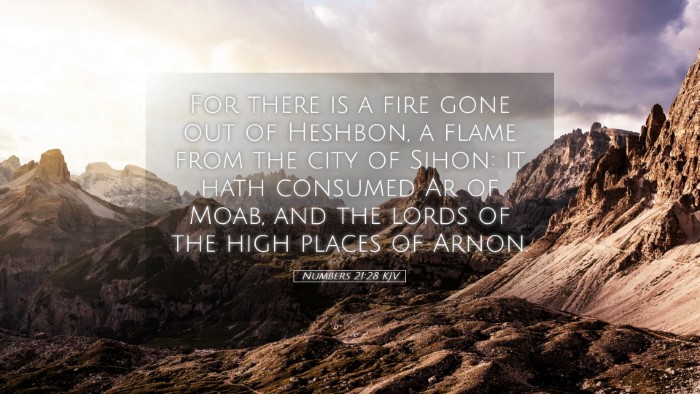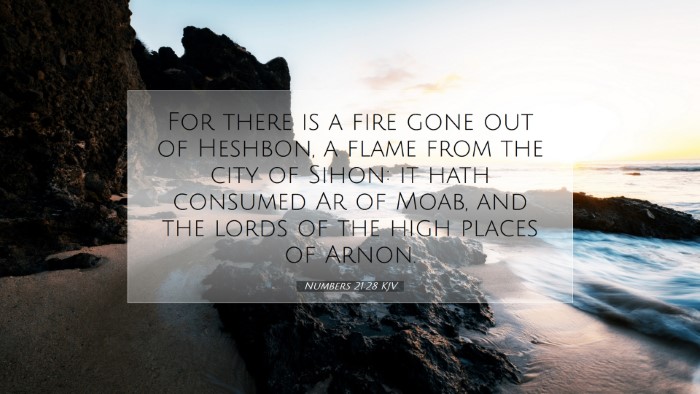Commentary on Numbers 21:28
Verse Context: Numbers 21:28 states, "For there is a fire gone out of Heshbon, a flame from the city of Sihon: it hath consumed Ar of Moab, and the lords of the high places of Arnon." This verse occurs during the Israelites' wanderings in the wilderness, specifically as they engage with the Amorites, emphasizing the fierce nature of the conflict and the power of divine judgment against Moab.
Historical Background
To understand this verse properly, we need to delve into the historical context in which it was penned. At this moment in Numbers, the Israelites are nearing the end of their forty-year endurance in the wilderness, as detailed in the preceding chapters. Their encounters with surrounding nations become increasingly hostile. The city of Heshbon, which was formerly under Sihon’s rule, stands as a central reference point for the Israelite conquests in the region.
Theological Significance
Many scholars, including Matthew Henry, point out that the narrative illustrates not only an account of Israel's military success but serves as a portrayal of God’s judgment against the adversaries of His people. The "fire" that comes out of Heshbon symbolizes the judgment and destruction that the Lord brings upon those who oppose His divine plan.
Divine Judgment
- Albert Barnes emphasizes that the fire represents divine retribution. Sihon’s transgressions against Israel are met with a swift judgment that fulfilled God's promise to deliver the land to His chosen people.
- Henry elaborates that this imagery of fire serves as a powerful metaphor for God’s consuming justice that will eradicate all opposition, reflecting a broader theme of divine sovereignty over nations.
- Adam Clarke notes that the flame consumes "Ar of Moab," indicating that God's wrath extends beyond His immediate enemies to those who assist or ally with them.
Spiritual Lessons
This verse holds profound spiritual lessons for contemporary readers, especially pastors and theologians. It emphasizes the pitfalls of opposing God’s will and cautions against alliances that lead one away from God's path.
- Opposition to God: Just as Sihon's actions led to destruction, so too does opposition to God's will lead to ruin. This teaches the modern believer of the grave consequences of defiance against divine instructions.
- God’s Protection: The deliverance of Israel signifies that those whom God deems righteous will find protection and victory. This offers encouragement to believers facing adversity.
- Hope for Redemption: Even among nations that faced judgment, God's overarching grace shows that there exists always a potential for repentance and redemption.
Application in Ministry
For pastors and educators, this passage encourages a careful approach to the proclamation of God's word. In teaching about divine judgment, it’s essential to balance God’s justice with His mercy, leading to deeper reflections on sin, repentance, and grace among congregants.
Moreover, it serves as a reminder to be watchful of the spiritual alliances formed in today’s society, urging believers to stand firm in their faith against cultural pressures that might dilute their devotion to God.
Conclusion
In conclusion, Numbers 21:28 encapsulates a powerful truth about God's sovereignty, divine judgment, and the promise of victory for His people. As noted by Henry, Barnes, and Clarke, the imagery of fire emanating from Heshbon serves as a vivid declaration of God's active involvement in human affairs, and serves to discourage opposition to His plans. For the pastor, the student, and the theologian alike, this passage invites a deeper appreciation of God's holiness, justice, and ultimate authority over all nations. As we reflect on this rich narrative, may we be stirred to reverence and obedience, recognizing the enduring relevance of these ancient words in our present lives.


